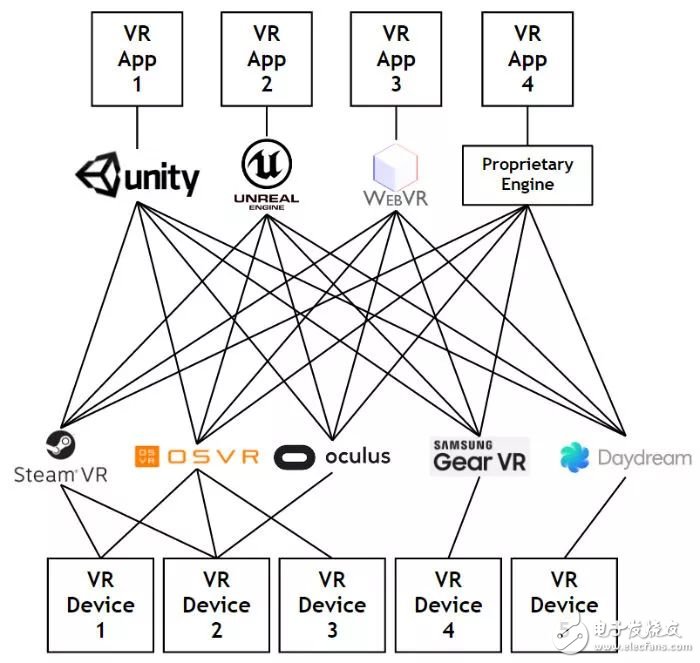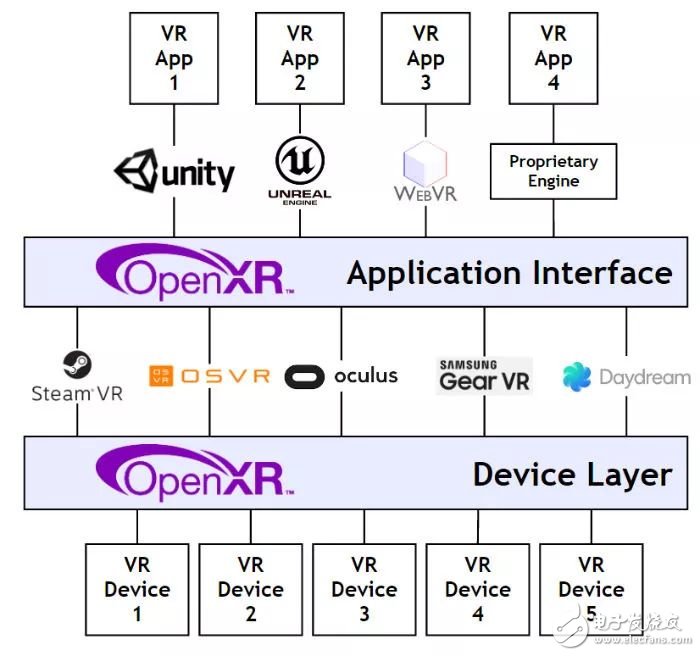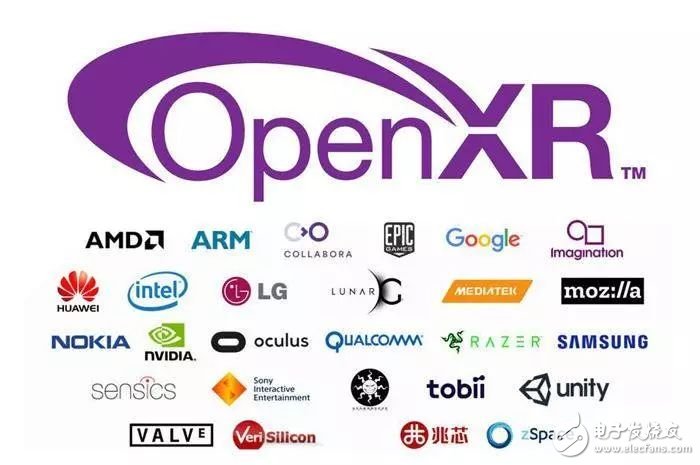The Khronos Group, which specializes in open standards APIs, has previously announced a new specification for the AR/VR industry. OpenXR is designed to standardize VR hardware and software communications and is supported by industry giants including Microsoft, Intel, AMD, NVIDIA, Epic Games, Unity, Google, Oculus and Valve.


Khronos Group announced through its official website that China's virtual reality technology vendor Pico officially joined the khronos Group. After joining, Pico will participate in the discussion and development of the OpenXR standard and work together with VR to improve the unified compatibility standards.
ARC: What do you think is the driving force behind the OpenXR standard development after the Khronos Group has won the support of many industry giants (Microsoft, Intel, AMD, NVIDIA, Epic Games, Unity, Google, Oculus, Valve, etc.)?
Kong Xianglong: First of all, we have to know what OpenXR is going to do. Due to the different systems and devices of different companies, this has led to various "split" situations in VR/AR devices and platforms. The goal of OpenXR is to reduce the hassle of developers to support APIs for different devices. OpenXR official website pointed out that due to the adaptation of APIs of various devices, the development cost will increase, and consumers will be confused, which will affect the development of the industry.
Therefore, the establishment of a series of standards means that application developers only need to write code once and can use it on various devices. An important issue facing VR development is that VR content is often hard-coded and compatible with only one set of hardware devices. The industry generally believes that one of the success factors of the VR industry relies on quickly solving this problem, so the market needs to develop standards for the VR industry to overcome this problem that hinders market penetration. Therefore, establishing cross-platform standards, whether it is a large company or a small company, is a burden reduction for them, and most importantly, this will undoubtedly promote the development of the VR industry.
ARC: The number of VR hardware in the market has been increasing in the past two years, most of which require developers to provide separate API support. So what impact does the market have on the VR hardware vendors when they set the standards of the VR industry?

Kong Xianglong: The purpose of OpenXR is to bring application operations to the Khronos security space and develop an API that eliminates industry friction. The application can be run once and run on all platforms for a win-win situation. Applications can run on more hardware, so hardware manufacturers can also provide more content to consumers.
To achieve this, OpenXR is supported by almost all VR vendors, including HTC, Valve, Oculus, Sony, Starbreeze, Razer, Samsung, Google, Tobii, Unity, and Qualcomm. Of course, there are also game developers like Epic Games.
Despite the wide range of OpenXR's co-developers, it's not hard to see that there are still some giants absent, which is also expected. To put it more rigorously, for Microsoft and Apple, all the content in the world runs on their platform, not on other platforms. Microsoft has finally joined OpenXR some time ago, but Apple still seems to believe that the open VR ecosystem is detrimental to its own interests. This is the idea that open source projects such as OpenXR have to eliminate.
ARC: There is no unified API in the AR/VR industry. It is undoubtedly a negative reality for content developers and players. What do you think is the specific performance?
Kong Xianglong: Imagine you added a new printer to your office. You connect it to your PC, install the demo software, and make sure it works. Then you suddenly found out that the word processor is not compatible with this printer. So, you have to wait for the word processor manufacturer to launch a new version. But when should you wait? Should I return this printer? Or should I switch to another word processor? Although this may look like the scenes of the 1980s, for virtual reality, this is what we are today. The situation facing.
Industry analysts and the media have been wondering if the VR industry will really take off. But as the Financial Times reported: "So far, the VR market has not developed as expected." One of the biggest problems facing VR is that VR experiences are often hard-coded and compatible with only one set of hardware. Only specific VR devices, tracking systems, and controllers can run a specific VR experience. If you want to play a VR experience with different VR hardware, this is usually not possible. For emerging markets such as VR, this may seriously hinder the popularity of consumers.
ARC: The success of virtual reality depends on a huge hardware market where casual and professional consumers are free to choose without worrying about fragmentation and incompatibility. Then I would like to ask what factors do you think Khronos Group needs to consider when formulating these standards in order to promote the standardization of the entire industry interface?
Garmin Battery,Garmin GPS Battery,Garmin Nuvi Battery,Garmin Rechargeable Battery
Shenzhen Sunwind Energy Tech Co.,Ltd , https://www.sunwindbatterylm.com